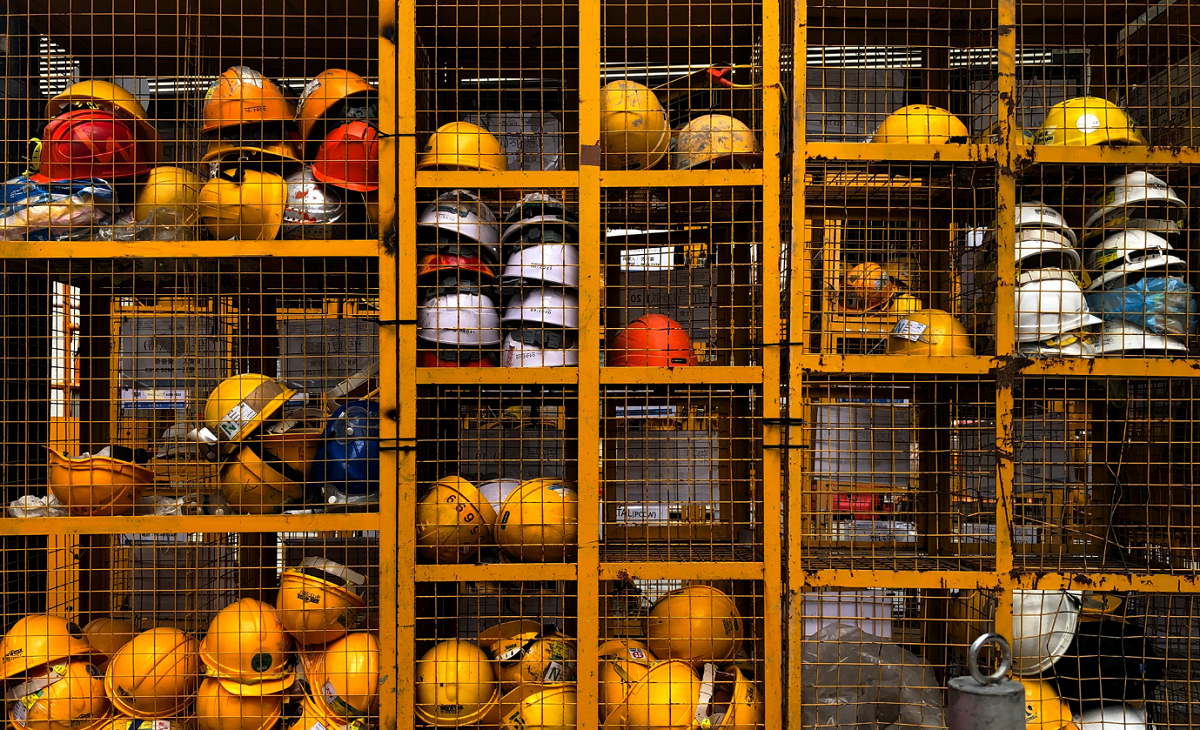Project_
Occupational safety – What role does personal responsibility play for the younger generation?

The starting point for the project was the study “Generation Y – Risk experienced differently” by the Risk Dialogue Foundation, which showed, among other things, that health and personal responsibility are core values of the Generation Y. When considered in the context of work, these values form a valuable basis for a proactive safety culture – especially for high-risk industries with a larger risk of accidents. To learn more about the values of “personal health” and “personal responsibility” in the work context among young adults from high-risk industries, the project team of the Risk Dialogue Foundation surveyed employees aged 16-30 from the construction, chemical and forestry industries.
Proceeding in two phases
In the first phase, the project team conducted focus groups in individual companies in all three sectors to discuss occupational safety and self-responsible action with the 16-30 year olds in open conversations. These very explorative conversations served to better understand and classify personal responsibility in the work context. The focus groups also examined the effect of company-specific cultural factors on the attitudes and needs of employees. In a second phase, the findings from the focus groups were validated in a broad online survey in German-speaking and French-speaking Switzerland, with the aim of further sharpening the concept of “personal responsibility”.
Personal responsibility:For one’s own safety and the safety of others
The survey shows that both personal health and the health of colleagues are of high importance to the respondents. This can be interpreted as an expression of intrinsic motivation for safe work and forms an important basis for personal responsibility in the work context. This assumption is strengthened by the finding that young adults in high-risk industries see the responsibility for occupational safety in the company at least equally with themselves and their superiors. They are therefore not of the opinion that occupational safety is the sole responsibility of the employer, but see themselves in an equally important role. The main reason given for this sense of personal responsibility and the associated sense of shared responsibility for occupational safety is that everyone is best able to recognise hazards at work. Thus, only each person can react to these dangers him/herself.
When asked what typical self-reliant actions were, the most frequently mentioned were “saying stop” in unsafe situations, asking colleagues and supervisors when one is unsafe, personal protective equipment and recognising unsafe actions. The answers clearly show that the understanding of personal responsibility goes beyond responsibility for one’s own behaviour. Rather, personal responsibility in the work context refers to (co-)responsibility for occupational safety in the respective team as well as in the entire company. This finding makes it clear that personal responsibility is a strongly cultural issue. If one wants to promote self-responsible action in a company, this goes hand in hand with the development of a proactive safety culture, in which openness and mutual trust are central and safe behaviour goes beyond following rules.
From the respondents’ point of view, strengthening factors for acting on one’s own responsibility were personal experience, sufficient room for manoeuvre on the part of superiors to be able to make decisions independently, secure framework conditions in the company as well as trust and exchange in the team. On the other hand, time pressure, lack of knowledge, e.g. in the handling of work equipment, as well as more difficult communication in the team were primarily mentioned as hindering factors. All in all, however, personal responsibility in the work context can be regarded as a “stable” attitude towards occupational safety. Even if, for example, there is time pressure at the workplace, autonomous persons usually behave safely. A combination of rules and control, personal experience and a proactive safety culture are helpful as important framework conditions so that personal responsibility can be lived out in the company.
Thinking and acting on one’s own responsibility as the basis of a new prevention strategy
In principle, the study paints a positive picture for occupational safety in high-risk industries. The assessments of the young adults can be seen as an indication of future developments. Personal responsibility can be used and addressed as an important element of sustainable prevention. However, this should not be done alone, but in the context of an overall prevention that also includes rules and control. Personal responsibility as a cultural issue must be considered specifically in the context of the respective company. All the findings of this study flow into Suva’s current work on a new prevention strategy, which focuses on a lived safety culture with self-responsible thinking and action.
.


